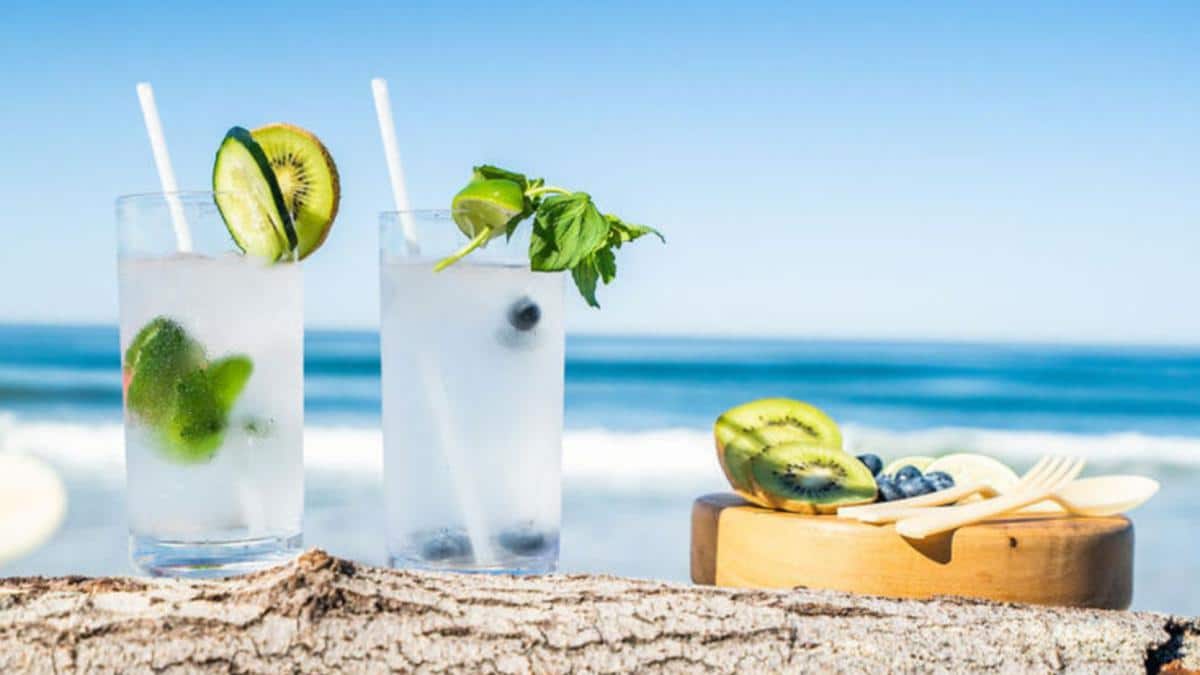
There’s a New Fork in Town, and It’s Biodegradable and Available at Target

Restore foodware cutlery and straws are made of a biomaterial that breaks down naturally in seawater, soil and compost. Newlight Technologies, Inc.
Sustainable plastic alternatives can feel too good to be true or unfeasible on a large scale. Not the case with Restore foodware, a line of biodegradable straws and regenerative cutlery made from methane and now available at Target stores nationwide.
Restore is a sustainable foodware brand from California biotech company Newlight Technologies, Inc. The company’s mission is to keep plastic out of the ocean by replacing it with a regenerative biomaterial called AirCarbon, a company representative told EcoWatch.
Restore claims that their products never get soggy in hot or cold conditions, contain no plastics or glues, require no food crops for production and are compostable at home.
How? It’s because of AirCarbon, the cutting-edge biomaterial used to make Restore’s forks, knives, spoons and straws. The innovative production process starts with an ocean microbe that absorbs and converts methane and carbon dioxide into a biomaterial called PHB. This material is extractable, meltable and shapeable into a range of products, from straws and office chairs to eyeglass frames, the company website explained. Newlight pioneered a way to recreate this process in tanks in order to extract the AirCarbon.
Newlight also sources methane from an abandoned mine; this methane would otherwise leak into the atmosphere, contributing to the greenhouse effect. So each AirCarbon item actually reduces the amount of atmospheric greenhouse gases through the production process, which is considered regenerative and carbon-negative. A Newlight press release estimated that “for every one kilogram of AirCarbon produced in Newlight’s production process using methane seeping from abandoned coal mines, 88 kilograms of CO2e are sequestered.”
Not only that, but if and when Restore’s foodware products end up in the sea or soil, as disposable plastics often do, they will naturally biodegrade into non-toxic components. The company also claims that their products quickly degrade In home compost bins. However, the foodwares are meant to be durable, dishwasher-safe and reusable.
“Because [AirCarbon is] naturally occurring, microorganisms in the ocean know how to eat it and consume it like a food source,” Newlight CEO Mark Herrema explained to Spectrum News 1. This is why the Restore products have a natural end-of-life pathway.
In March 2021, Restore piloted its AirCarbon straws and cutlery at Shake Shack locations across the country as part of the latter’s “Stand For Something Good” campaign. One month later in time for Earth Day, Newlight began distributing Restore products in Target stores nationwide and on target.com, Bioplastics Magazine reported. By reaching this scale with its first national distribution partner, Newlight is now able to offer Restore products directly to consumers for the first time. Consumers can buy 24-piece packs of wrapped straws and three-piece cutlery packs that come in a reusable natural fiber carrying bag.
“Our goal is to help end ocean plastic pollution by finding a shared middle ground,” Herrema told Bioplastics Magazine. “For us, that means making sustainable products that people love and that also work for the environment. This launch is the culmination of many years of hard work by many dedicated people.”
As for what’s next, Herrema told EcoWatch, “The next goal is to continue to expand our impact — we’re focused on expanding production capacity as quickly as we can, and continuing to grow the availability of AirCarbon in foodware, fashion, and other industries. We’ll be announcing new partners and projects as part of that in the months ahead.”
Longer term, Herrema told Spectrum News 1 that Newlight’s plan during the next five to seven years involves replacing more than 90 percent of plastic products that end up in the ocean, including plastic bottles.
“This is very much the beginning,” he added.
- The Plastic Myth and the Misunderstood Triangle - EcoWatch
- Study: Glass Bottles Harm the Environment More Than Plastic ...
- 5 Sustainable Alternatives to Plastics - EcoWatch
- 13 Tips to Have a Plastic-Free Fourth of July Party

 233k
233k  41k
41k  Subscribe
Subscribe 